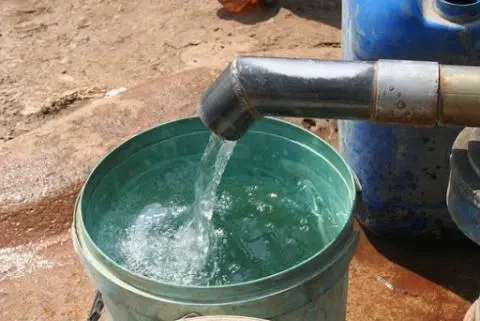In a significant development, the Federal Capital Territory Water Board has witnessed a remarkable revenue growth, with reported earnings reaching N3.1 billion from January to November 2023. The acting Managing Director of the Board, Mr. Daniel Salka, made this announcement during a comprehensive end-of-the-year media briefing held in Abuja on Thursday.
Highlighting the positive trend, Salka emphasized that the reported figure exceeded the N2.5 billion generated in the corresponding period of 2022. He went on to shed light on the Board’s monthly Internally Generated Revenue (IGR), revealing a substantial increase from approximately N200 million to surpassing N300 million.
Salka positioned the FCT Water Board as a pivotal revenue-generating entity within the FCT Administration, attributing the growth to various revenue streams. Breaking down the revenue structure, he indicated that the predominant share, constituting around 95%, was generated through the sale of water. Additional revenue sources included lifting points, water connections, water analysis, tender fees for procurement, and prepaid meters.

One notable accomplishment highlighted by the acting MD was the successful reduction of non-revenue water. Describing non-revenue water as water lost to leakage, illegal connections, faulty meters, and other factors that do not contribute to the Board’s revenue, Salka commended the efforts of the Task Force team on Revenue Drive and Illegal Connections.
The Task Force played a crucial role in identifying and rectifying numerous illicit connections, either disconnecting or regularizing them. Additionally, individuals neglecting water bill payments were compelled to settle their dues to prevent disconnection, contributing to the overall improvement in revenue collection.
Addressing the challenges posed by the surge in the FCT population, Salka highlighted the Board’s commitment to consistently providing enhanced water supply to city dwellers. However, he acknowledged the existing constraints, stating that the current supply of 13,000 cubic meters of water per hour, totaling 312,000 cubic meters per day, is insufficient due to facility limitations.
Salka provided insights into the operational capacities of the Water Treatment Plants, explaining that while Plants 1 and 2 can produce 5,000 cubic meters of water per hour, Plants 3 and 4 produce 10,000 cubic meters each per hour. Despite these capacities, Phases III and IV of the Plants, intended to service reservoir Tanks 1 and 6, have been under reconstruction. Plant 2 is also undergoing renovation, rendering it non-functional at present.
Looking ahead, Salka acknowledged various challenges impacting the Board’s performance, including insufficient infrastructure, population growth, and the absence of an effective metering system. However, he expressed optimism for improved service in 2024, outlining plans for enhanced community engagements, increased public awareness, and a concerted effort to educate the public about the importance of paying for water services and protecting water infrastructure.
“In 2024, we will focus on reducing non-revenue water, enhancing collaboration with stakeholders, including government agencies, non-governmental organizations, and international organizations,” stated Salka. “The completion of the Greater Abuja Water Works will also bring relief to FCT residents by increasing access to water.”
Support InfoStride News' Credible Journalism: Only credible journalism can guarantee a fair, accountable and transparent society, including democracy and government. It involves a lot of efforts and money. We need your support. Click here to Donate
